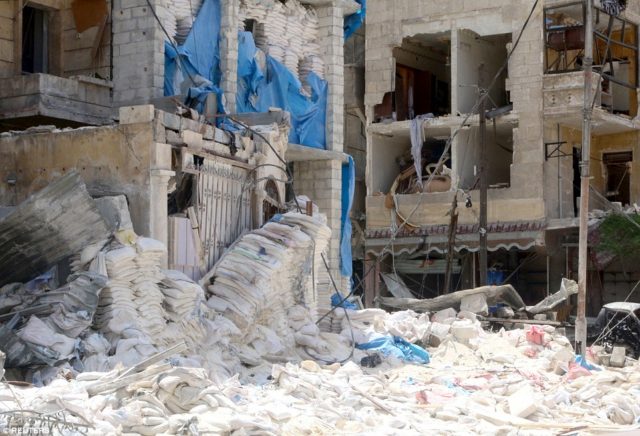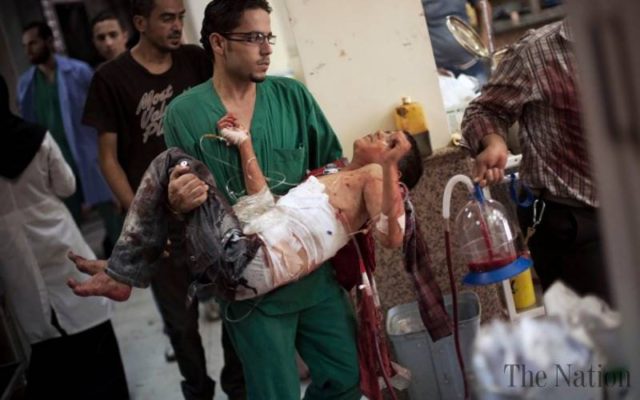Hospitals in Syria have been recklessly targeted. Right to healthcare at the time of war now seems like a distant reality. The world is silent.
Syria is now a dystopian neverland. It has been damaged by ISIS. It is now being damaged by “pacifists” alike. We are not equipped with that imagination to capture an image of war atrocities.

Since the airstrikes led by Russian and Syrian forces, only seven health professionals capable of performing surgeries on war-wounded patients remain in Aleppo.
At least there are seven, you say? Well, it is an area with a population of approximately 250,000 people.
The two main surgical medical facilities of eastern Aleppo which were supported by Doctors Without Borders (MSF), have been damaged five times each, leaving one facility out of service since October 1.
We have to stand with the numerous doctors, health workers and nurses who are providing medical care to these patients for free. In a world where petitions can be easily filed online, and pressure created on the leaders to take action, it is a matter of shame that there has not been a considerable effort generated by the worldwide community to stop this terror of war. It is a shame that there is no real insight on this issue. We have reports, no protest literature.
Why solidarity with doctors? They might be unknowingly tending to jihadists.
That can be a possibility. It is. But considering the above stated argument, why such solidarity with soldiers when there can be civilian casualties?
The truth is, both the soldiers and the doctors are adhering to their duties. Not allowing a doctor to attend to patients is as blasphemous as a soldier who refuses to attack the enemy.
On 3rd May 2016, the UN Security Council unanimously passed Resolution 2286, demanding protection for civilians and medical services in conflict situations, after Al Quds Hospital in Aleppo was destroyed by a US-led airstrike that killed the last paediatrician of the city. Six months later, the resolution has failed. It has failed because of our inability to consider this as a war crime.
Not standing with doctors is being comfortable with the ravages of war. It is denying that war can indirectly affect people. It is blaming the victims for they couldn’t flee.
Doctors are performing brain and abdominal surgeries on the floors of emergency rooms. The birth of a baby is announced by the thunder of a bomb.
The World Health Organisation has announced that since the beginning of the war, there is a resurgence of once-extinct infectious diseases like polio and leishmaniasis (skin ulcers). There is an emergence of measles, typhoid and tuberculosis epidemics. At least 600,000 Syrians have suffered lifelong disabilities due to absence of healthcare facilities.
And the coalition doesn’t want a hospital.
Where will the Syrians go? Where can they go? Are they even visible to the world? Are they audible enough?
The governments around the world can pour enough financial aid to fund agencies that act upon providing free medical healthcare. Subsidised medicines should be the need of the hour. We, as citizens, have the moral responsibility to not let the issue sediment. True, there are other issues around the world that need attention, but we cannot ignore a war on health workers. It is the duty of the Syrian government to protect them, and not partner with Russia in the name of peace. The airstrikes on civilians and health workers are termed “mistakes”, and we all do understand that war is planned, and not a folly. As Dr. Joanne Liu, head of MSF said, the United Nations should understand the we “reject the word mistake“.
If all these factors still don’t motivate you to speak for this issue, remember this:
A victim of an airstrike at Kunduz Trauma Centre, Afghanistan (which killed 42 people) said, “We came to the trauma centre because it was a safe place. We knew we couldn’t be bombed there.”
Other Recommendations:
http://edtimes.in/2016/10/how-can-we-respond-to-the-refugee-crisis/





































